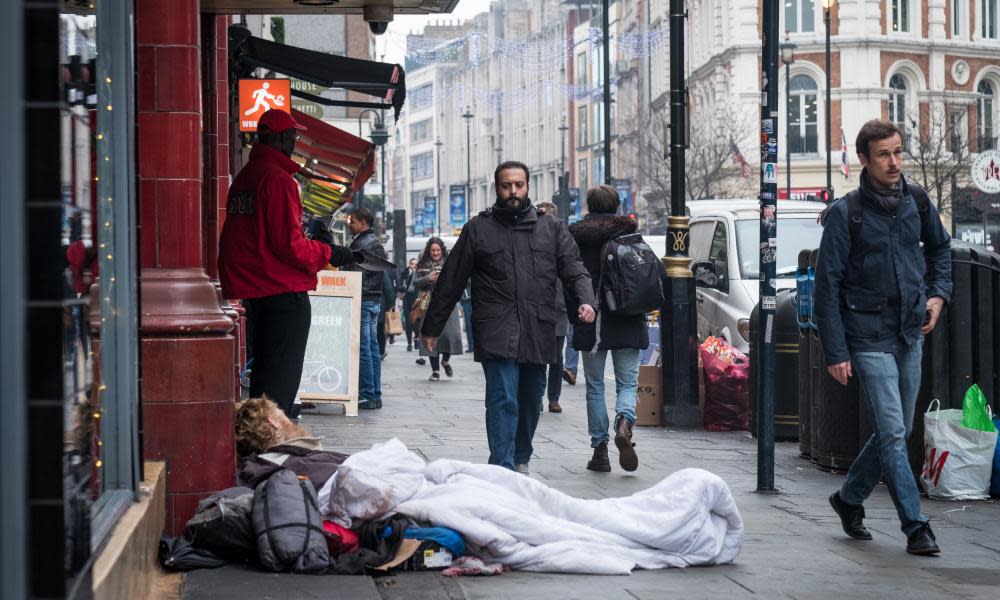Labour urges action to improve voting among UK homeless

Labour has urged the government to use planned reforms to the electoral system to ensure more people without a permanent home are helped to vote, after statistics showed that only about 2% are registered.
The Cabinet Office is due later to announce details later this month of its democratic engagement strategy, which aims to improve voter turnout by making it more straightforward for people to join the electoral register.
Concerted efforts to help overseas voters and students to sign up had increased the size of the electoral register, but Labour says the system for people without a permanent address is unwieldy and offputting.
Most voters can sign up online, but people who are homeless or in temporary accommodation have to download, print and manually fill in a form called a declaration of local connection, which must then be sent to the local electoral registration officer.
Ahead of the engagement strategy, which is due to be published on 19 December, Cat Smith, Labour’s shadow minister for voter engagement, has written to the Cabinet Office minister, Chris Skidmore, saying the government is “not doing enough to encourage homeless people to participate in our democracy”.
The latest electoral register for England showed just 2,963 entries made through a declaration of local connection, Smith wrote, while more than 137,000 people are officially listed as homeless or in temporary accommodation.
The figures show 48 local authorities without a single such person registered to vote, among them Bradford, Luton, Worcester and Harrow in north London. Only two areas have more than 100 registrations.
These statistics were unacceptable, Smith wrote. “Whilst recognising the work that has been done in this areas since 2015, clearly the low levels of registration demonstrate this simply has not been enough,” she said.
“And when we compare the amount of advice ministers seem willing to give though those living abroad compared to those without a home here in the UK, it is clear that the government has all the wrong priorities when it comes to democratic engagement.”
According to Smith, the Electoral Commission website contains 714 pieces of guidance for overseas voters, but only 65 for homeless voters.
Official statistics for homeless people and those in temporary addresses traditionally understate the scale of the problem. Charities estimate their total number could be as high as 3.5 million across the UK.
The proportion of eligible overseas voters on the electoral register is considerably higher following a registration drive begun in 2015.
The number of registered overseas voters shot up from about 35,000 to 264,000 at the end of last year. To qualify, people must have left the UK less than 15 years ago.
John Turner, the chief executive of the Association of Electoral Administrators, said the group had raised the problem with ministers following the last two general elections.
“We continue to press it,” he said. “We meet the Cabinet Office on a fairly regular basis and raise it at every opportunity. We certainly don’t understand why it is something that cannot be looked at.”
A good solution would be for people without a permanent address to also be able to register entirely online, he said. “I really don’t see what the obstruction or objection would be to trying to widen this to ensure that anybody who is part of society, regardless of where they sleep at night, is able to fulfil what is the basis of democracy.”
A Cabinet Office spokeswoman said the government was “committed to ensuring that everyone who is eligible to vote is able to do so”, and that Skidmore met homelessness organisations including St Mungo’s, Crisis and Shelter to understand how to tackle the issue.
“Government is considering the current system of declarations of local connection and commissioning research to better understand the barriers for people who are homeless,” she said.

 Yahoo News
Yahoo News 
